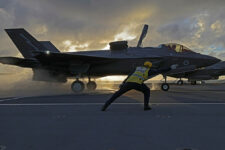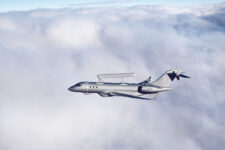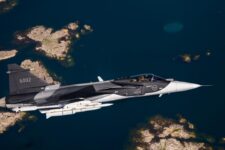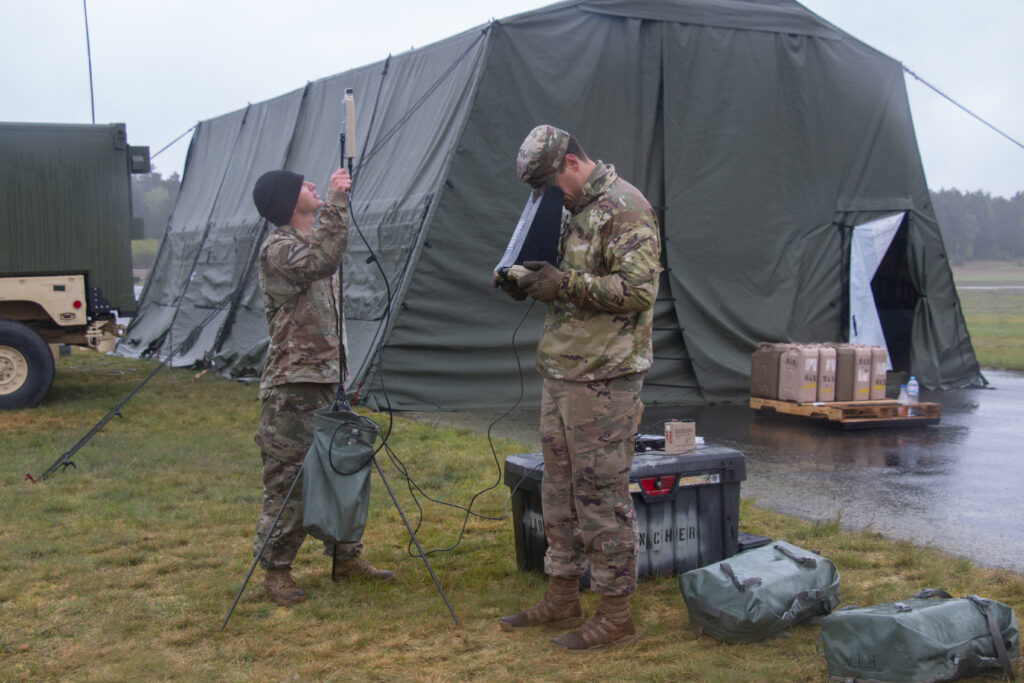
Soldiers operate the RQ-11 Raven
WASHINGTON: Special Operations Command may double its investment in cyber operations and electronic warfare in the 2022 budget, a senior command official said today, signaling a shift in how operators view the challenges on future battlefields.
Contained under the heading “next-generation effects,” the emerging area includes defeating drones, offensive electromagnetic and directed energy weapons, and drone swarms — all areas of intensifying focus for the Pentagon.
At the annual SOFIC conference today, a presentation by Lisa Sanders, SOCOM’s director of science and technology, displayed a slide with a graph showing a $36 million budget in 2022 for next generation effects, up from $16 million in 2021.
The funding line stands out as every other area of funding save for Network and Data Management is likely to dip under the next budget, expected to be released on May 27.
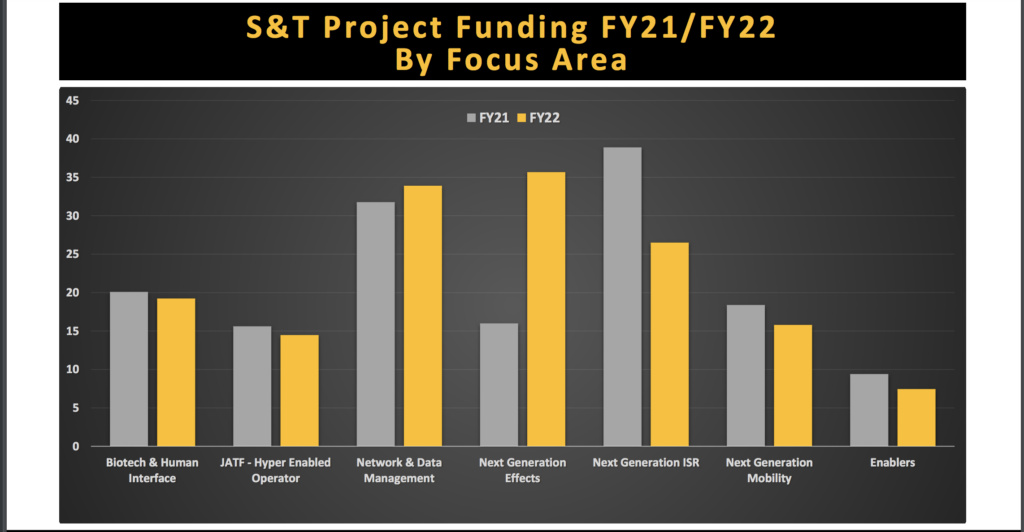
A slide presented today at the annual SOFIC conference provides a look inside the 2022 budget
Sanders said that the command wants to move fast, and isn’t interested in “incremental” improvements to existing technologies and weapons systems. In June, SOCOM will host a “foundry day” where industry can bring their ideas for new capabilities — and Sanders warned that they better think hard about what they bring to the table.
“That’s not a bullet that goes farther. It’s not a more accurate sniper rifle,” she said. “It’s going to explore the areas of cyber. It’s going to explore the electromagnetic spectrum, it’s going to explore information as a means of achieving effect.”
What SOCOM leaders are looking for is to fill gaps in its portfolio that include “force protection at the edge, anything in the non kinetic area — information operations, electronic warfare and cyber effects. We’re looking for projects coming to us that have those kinds of capabilities.”
More so than much of the rest of the Pentagon, SOCOM is looking to transform itself from an organization focused on hunting, tracking, and killing insurgents in Iraq, Afghanistan, Yemen and Syria for much of the past two decades to a force that can overmatch a sophisticated enemy. The counterterrorism mission won’t go away, but operations detecting and knocking drones and competing in the electromagnetic spectrum against peer threats will become the focus.
“Everything we’re doing now is going to be hard,” SOCOM commander Gen. Richard Clarke said today at the event. “It’s going to be multi-domain, it’s going to be partnered and it’s going to be contested in every step…and there are countries that are close on our heels.”
With China and Russia rapidly pushing ahead in areas like EW and information operations, special operations forces will need to play both offense and defense, often at the same time. “The more that we can understand how our adversaries and how our competitors are working in this space and apply the intelligence tools against those, the better off we will be,” Clark said.

